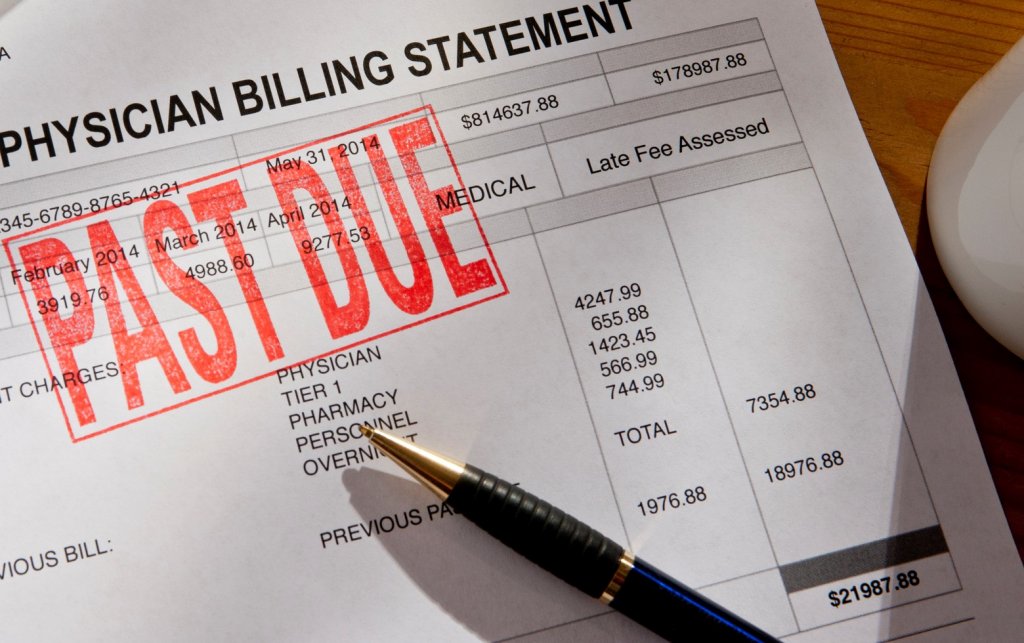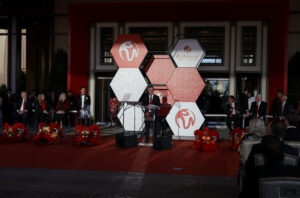5:45
News Story
Nevada offers fewer consumer debt protections than almost every other state, report says
Nevada is one of the worst states in the nation when it comes to offering consumer debt protections, according to a new analysis by the National Center for Access to Justice at Fordham Law School.
Nevada ranked 47th in the nation on NCAJ’s Consumer Debt Litigation Index, which analyzes states against 24 specific policies designed to protect consumers. Only Hawaii, Louisiana, Montana and Rhode Island offered fewer protections than Nevada.
NCAJ’s Consumer Debt Litigation Index can be broken down into four basic principles, explained Director of Law & Policy Lauren Jones.
“First, in too many cases people never even get notice that they are being sued, and, if they do, they have no idea how to proceed. People should be notified of a lawsuit and where they can find help,” she said in a statement. “Second, to prevent bogus lawsuits, creditors should be required to produce evidence that a debt claim is valid. Third, fees, interest, and total payment amounts should be limited so that lawsuits do not render people destitute. And, finally, debtor’s prison must be eliminated once and for all.”
Nevada does not require defendants be notified via first class mail of a consumer debt lawsuit against them, nor does the state require guidance be given on where consumers can seek free legal assistance.
Low-income people, who often move frequently, are considered especially vulnerable to what’s known as “sewer service” — when a debt collector falsely claims to have properly served notice, according to the ACLU, which has also advocated against the criminalization of private debt.
NCAJ advocates for state legislation requiring debt complaints to include key information, such as the name of the original creditor and an itemization of the amount being sought. They also recommend a four-year or shorter statute of limitation on debt collection actions. Nevada has neither policy.
Such policies would benefit consumers, who may have valid defenses against a debt claim but not realize it or have the opportunity to present it in court.
Nevada state lawmakers last year did pass a bill that would have required debt collection agencies to provide, upon request, a letter explaining what is owed, including a breakdown of the principal balance, the amount of interest and fees being assessed, and how the interest and fees were calculated. Collection agencies would also have been required to provide a letter stating that a debt has been satisfactorily paid.
Gov. Joe Lombardo vetoed the bill, citing issues with a provision that would have allowed a debtor to take civil action against a debt collection agency who failed to provide the required payoff or satisfaction letters.
Debt claims are the most common type of civil cases in Nevada, according to Pew, which analyzed available court data from 2021. Debt collection claims made up 38.7% of civil cases in Nevada that year. For comparison, landlord-tenant filings made up 31.8% and all other types of civil filings made up the remaining 30%.
Debt claims are clogging up the legal system, which already favors debt collectors over average citizens, argues NCAJ. Nationally, more than 70% of debt cases are won by default when the person being sued fails to respond or appear in court. Less than 10% of people sued for debt can afford a lawyer, according to Pew. An analysis by the ACLU in 2018 put legal representation for debtors even lower — 2%.
Those filing the lawsuits almost always have legal representation, according to consumer advocates. One analysis of the Great Lakes region found that five large national companies made up more than half of the debt collection court cases in Michigan and Indiana.
For many, these private debts perpetuate a cycle of financial instability. Court-ordered wage garnishments that fall under existing caps can still impact already stressed wallets, say advocates.
At its worst, debt collection can even lead to incarceration, in what advocates say amounts to debtor’s prison. Thirty states, including Nevada, allow for the arrest and imprisonment of people after they fail to obey a court order to pay the debt.
NCAJ recommends banishing imprisonment over consumer debt judgments altogether, or at the very least providing right to counsel for proceedings where incarceration may be the outcome.
“Legal reforms can reduce the number of unjust lawsuits filed, increase the opportunity for people to learn they have been sued and defend themselves effectively, and stem the flow of adverse judgments that lead to unjust wage garnishment, arrest and incarceration,” said NCAJ Executive Director David Udell in a statement.
Our stories may be republished online or in print under Creative Commons license CC BY-NC-ND 4.0. We ask that you edit only for style or to shorten, provide proper attribution and link to our website. AP and Getty images may not be republished. Please see our republishing guidelines for use of any other photos and graphics.




